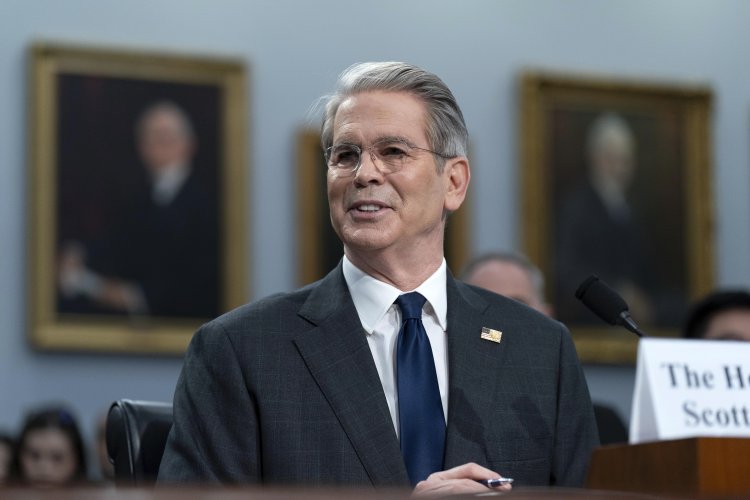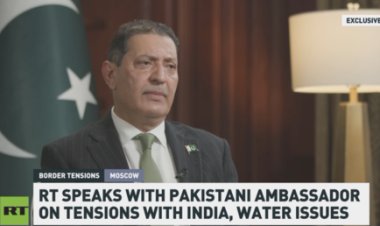Chinese Trade Official to Hold Meeting with Bessent and Greer in Switzerland
The trade discussions follow several months of halted advancement.

Treasury Secretary Scott Bessent and U.S. Trade Representative Jamieson Greer will meet in Geneva on Saturday and Sunday with Vice Premier He Lifeng, a member of the Chinese Communist Party's ruling Politburo and China’s leading economic figure.
The prolonged stalemate regarding who would initiate easing trade tensions has complicated how both the U.S. and China characterized the motivations behind this meeting.
In an effort to save face, both parties attempted to frame the high-level meeting as a coincidence, given that the top officials would be in Geneva concurrently.
“I was going to be in Switzerland to negotiate with the Swiss,” Bessent stated in an interview on Fox News. “Turns out the Chinese team is traveling through Europe, and they will be in Switzerland also. So we will meet on Saturday and Sunday.”
Meanwhile, China’s press release indicated that He would be in Geneva at the invitation of the Swiss government. This setting offers a neutral ground for the two countries to attempt to reduce trade tensions. Geneva is also home to the World Trade Organization, underscoring its symbolic significance in the increasingly strained global trading system governed by rules.
Bessent sought to manage expectations about the possibility of the two sides starting discussions on a comprehensive trade agreement during this weekend's meeting, an engagement that experts believe would require extensive negotiation.
However, he noted there may be opportunities to discuss how to de-escalate from the 145 percent tariffs imposed by Trump on Chinese goods and Beijing’s retaliatory tariffs, which stand at 125 percent on American goods.
“This isn't sustainable, as I said before, especially on the Chinese side,” Bessent commented. The current tariffs are “the equivalent of an embargo. We don't want to decouple. What we want is fair trade.”
When Fox host Laura Ingraham inquired about which side initiated the arrangement for the meeting, Bessent was noncommittal. “There are lots of calls… There isn't a first call. There are a lot of contact points over time,” he remarked.
He also chose not to disclose whether Trump would propose lowering his tariff to 50 percent as a gesture of goodwill, stating, “everything’s on the table” and that Trump would ultimately decide the course of action.
Although the Chinese press release did not explicitly mention that He would meet Greer in addition to Bessent, the timing of the trip implied that such a meeting was likely. Traditionally, the U.S. Trade Representative has taken the lead in trade negotiations, but the Trump administration has deviated from this norm.
“At President Trump’s direction, I am negotiating with countries to rebalance our trade relations to achieve reciprocity, open new markets, and protect America’s economic and national security,” Greer said in a statement. “I look forward to having productive meetings with some of my counterparts, as well as visiting with my team in Geneva who all work diligently to advance U.S. interests on a range of multilateral issues.”
This meeting occurs as both the Trump administration and Chinese officials have suggested there may be possibilities for negotiation.
“Our doors are open if the U.S. wants to talk,” Chinese Foreign Ministry spokesperson Lin Jian stated Tuesday. However, he emphasized that the Trump administration's approach of coercing trading partners will not be effective with Beijing. “If a negotiated solution is truly what the U.S. wants, it should stop threatening and exerting pressure,” Lin added.
This weekend's discussions could represent an initial step toward addressing what has effectively become a trade embargo between the two nations. Businesses are already signaling concerns over rising costs, as imports to the West Coast have decreased to levels not seen since the early days of the COVID pandemic.
Jessica Kline for TROIB News
Find more stories on Business, Economy and Finance in TROIB business












